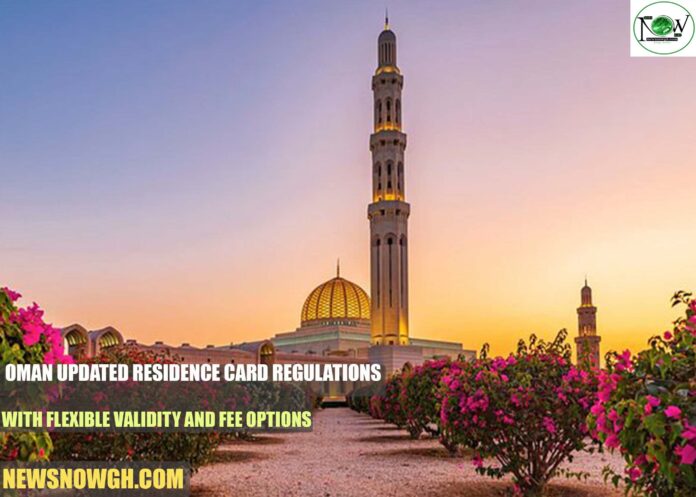Oman Introduces Updated Residence Card Regulations with Flexible Validity and Fees
Oman has recently revamped its residence card regulations, introducing flexible validity options and affordable fees for expatriates. This change simplifies life for over 1.8 million foreign nationals and reflects Oman’s commitment to modernization.
In a significant update, the Royal Oman Police (ROP) has announced new rules for expatriate residence cards. These changes aim to ease the administrative burden and financial strain on the country’s diverse expatriate community.
New Validity Options for Expat Residence Cards
Previously, expatriates faced a rigid renewal process with limited choices for residence card validity. Now, they can select from three flexible options:
- 1 year – 5 OMR
- 2 years – 10 OMR
- 3 years – 15 OMR
This tiered system empowers expatriates by giving them control over their paperwork and expenses. Whether you are here for a short contract or planning a long stay, there’s a renewal option that suits your needs. If you lose or damage your card, you can obtain a replacement for a flat fee of 20 OMR.
Longer Validity for Omani Personal Identity Cards
The updates also benefit Omani citizens. The validity of national identity cards has been extended from 5 years to 10 years. This change aligns the identity card with the duration of Omani passports, making life easier for locals. The issuing, renewing, or replacing cost remains at 10 OMR, reducing the frequency of renewals.
Overview: Oman Residence Card
For newcomers or those planning to move to Oman, the residence card serves as your official proof of legal residency. It contains personal information, visa status, and biometric data. This card is essential for various activities, including signing leases and obtaining mobile SIM cards.
You receive the residence card after acquiring a residence visa, making it crucial for expatriates working, studying, or reuniting with family in Oman.
Impact on Foreign Residents
As of June 2025, Oman hosts approximately 1.8 million expatriates, many of whom are engaged in private sector jobs, domestic roles, or government-supported projects. The updated validity options offer several advantages:
- Less Frequent Renewals: Opting for a 2- or 3-year validity means fewer visits to ROP offices.
- Reduced Paperwork: Streamlined processes lead to shorter queues and less administrative hassle.
- Increased Flexibility: Whether you plan a short stay or a longer commitment, you can choose the option that works best for you.
These updates also bring Oman’s residency practices closer in line with other Gulf nations, marking a positive step towards modernization.
30-Day Grace Period Remains in Place
One element that remains unchanged is the 30-day grace period for renewing your residence card after expiration. Missing this window could lead to penalties or loss of legal status.
Why This Matters
This change is not merely a procedural adjustment; it represents Oman’s effort to enhance the quality of life for expatriates. By reducing bureaucratic obstacles, the government signals its commitment to making life easier for those living abroad.
For travelers, job seekers, and long-term residents considering Oman, these updates present compelling reasons to choose this welcoming destination. With improved processes, Oman remains a viable option for expatriates seeking new opportunities.
Follow NewsNowGh to stay updated on the latest information regarding work permits, visas, and visa-sponsored employment.


